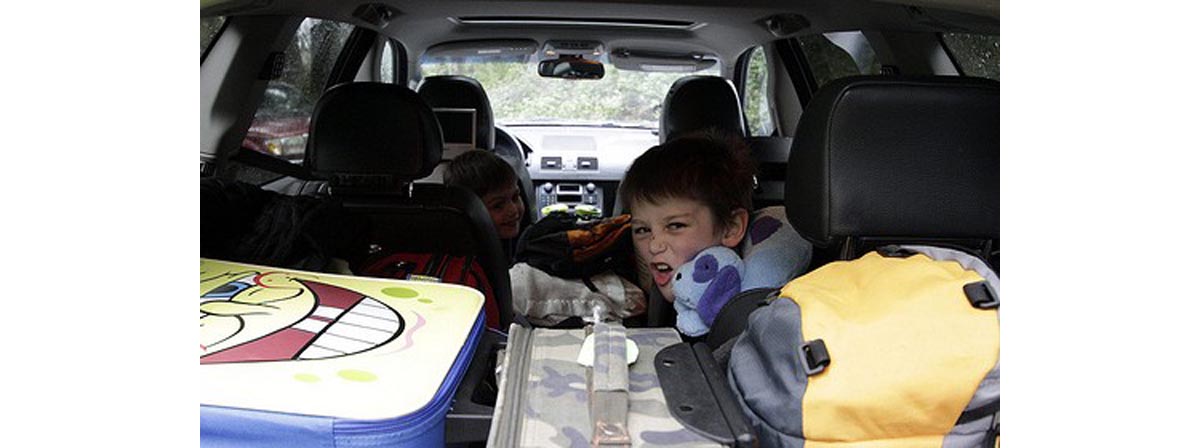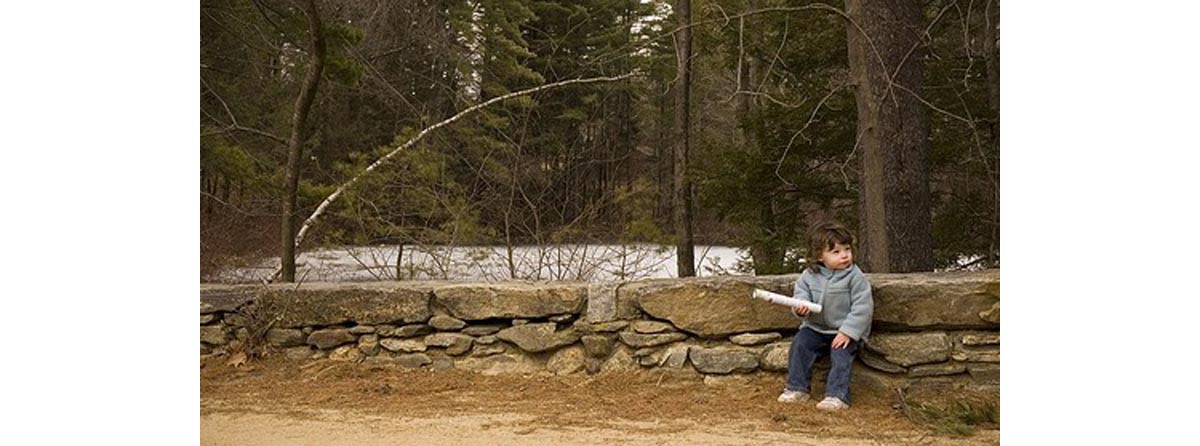“Passports, tickets, money” is a fantastically helpful mantra for anyone who is going to board an air plane. If you have kids, the days of jetting off last minute without a care in the world are largely gone, though, and you'll need to think about a ton of other stuff beside passports, tickets and money.

Babies and kids seem to collect a whole host of items they can't live without and that you'll have to take with you when you go on vacation. But I am not talking about those things — what is really important when you go on vacation with your kids is that you take the right safety precautions. What can you do to prevent emergencies of various kinds, and what should you do if one strikes anyway?
Common Vacation Hazards
You may be going on vacation to relax and recharge your batteries, but don't relax so much that you don't notice safety hazards that could turn your much deserved break into a living nightmare. What are some of the most common vacation hazards for families with young children? They lurk in more places than you could ever imagine!
The chances are that your summer break will involve swimming. Pools, lakes, seas and oceans are all great fun. They can also pose a big danger to children who are not yet proficient swimmers.
One parent or caregiver should constantly be on the look-out when kids who can't swim very well yet are playing in the water — make the task more fun by engaging with your little ones. Remember that it's very possible to drown even in very shallow water.
You'll also want to watch out for some other swimming-related hazards. Tiles around pools can be very slippery, and adults and kids alike should be very aware of that. Natural bodies of water can be dirty and contain sharp bits and glass.
Parents with really little kids will also want to be sure that their hotel room or apartment is safe for small ones. Beside the normal babyproofing stuff, you will want to check if any balconies that lead off your accommodation are safe.
If you are going to some kind of “exotic” destination, you might also want to check the quality of the country's infrastructure and how much attention they generally pay to road safety.
Some of the biggest possible hazards come from the natural world — mosquitos, snake bites, ticks, and, (yes, very unlikely!) sharks. Anyone going on vacation abroad should check if they need a tetanus booster shot, but also which travel vaccines are recommended for the destination in question. You can use the internet to check if the country you will be visiting has any particular natural dangers, and what you can do to stay safe.
Food poisoning is another very common vacation problem. It won't kill you or your kids, but it might just ruin your vacation experience. Sitting on the toilet for a week isn't anyone's idea of fun. Therefore, avoid purchasing food from street stalls and dodgy-looking restaurants. Make sure you enjoy your safe meals with equally safe drinking water too, by checking if the local tap water poses a risk before you consume it. (And remember — even if you order bottled water, the ice cubes are usually made with tap water!)
Last but not least, sunburn is a very frequent but often overlooked danger. It increases the risk of skin cancer, but is also a very painful experience for everyone, but children in particular. Applying a good sun screen with a high protection factor is one precaution you can take to prevent sunburn; staying out of the sun during the hottest hours is another.
Medical Care At Your Destination
Accidents can happen, no matter how many precautions you take. Therefore, make sure you have the appropriate travel insurance coverage, investigate the quality of local hospitals and clinics, and have their phone numbers ready in case of an emergency.
Pregnant women might want to make sure that OBGYN care is available locally. Some family-friendly hotels and resorts even have obstetricians/gynecologists on the premises.
Getting Lost On Vacation And Human Hazards
Now that we've got broken bones, sunburn, food poisoning and drowning covered, it's time to take a look at another all too common vacation hazard — other humans.

Resort Animators And Vacation Babysitters
You and your other half are really looking forward to your family vacation, but would be immensely grateful for some quality couple time as well as family fun. You'd love to spend some time without the kids, and your hotel or resort is willing to help out with that — they have a whole program for children, and offer babysitters on site just so you can go out for dinner together at night.
I don't. I am a childhood sexual abuse survivor, and I do not leave my children in the care of strangers under any circumstances. Sexual abuse is much, much more common than stranger abduction (the other thing you are probably worried about but that is so rare that you can basically stop thinking about it right now).
How big are the chances that something “like that” will happen to your child while in the care of a stranger on vacation?
Since your children's well-being is at stake, that doesn't really matter (although, for reference, current estimates indicate that around one in three girls, and one in six boys, will suffer some form of sexual abuse). I go with the opposite of Nike's slogan: just don't do it. If you want to spend time together without your kids, take your mother in law, sister, or friend with you on vacation, so you can take shifts and have some worry-free adult fun. Even better, leave your kids at home to enjoy a weekend away on another occasion.
What To Do If Your Child Gets Lost
What if your kids get lost while you are on vacation in another country? Your child will be in an unfamiliar environment and may have a language barrier to deal with as well. You will, of course, work on staying together at all times so this simply won't happen. But some precautions are very useful. I suggest:
-
Dressing your kids in brightly colored, easy to describe clothes and having very recent pictures of them with you at all times.
-
Setting up a designated meeting spot where you will find each other if you get lost, for older kids.
-
Making sure older kids have cellphones — that work at your destination — available so they can reach you. Also save the number of the place you are staying and that of your embassy to their phones.
-
Placing your contact details on a younger child's body. There are necklaces available.
You can also teach your children to approach a woman, and preferably one with kids of her own in tow, for help if they get lost. Women are statistically less likely to be predators, and are also more likely to be helpful. Teaching your kids to approach a police officer is problematic, both since it might take a very long while for one to show up, and because it might be hard for your child to correctly identify a police officer.
- Photo courtesy of sean dreilinger by Flickr : www.flickr.com/photos/seandreilinger/5545946240/
- Photo courtesy of Troy B. Thompson by Flickr : www.flickr.com/photos/troybthompson/118365647/


Your thoughts on this